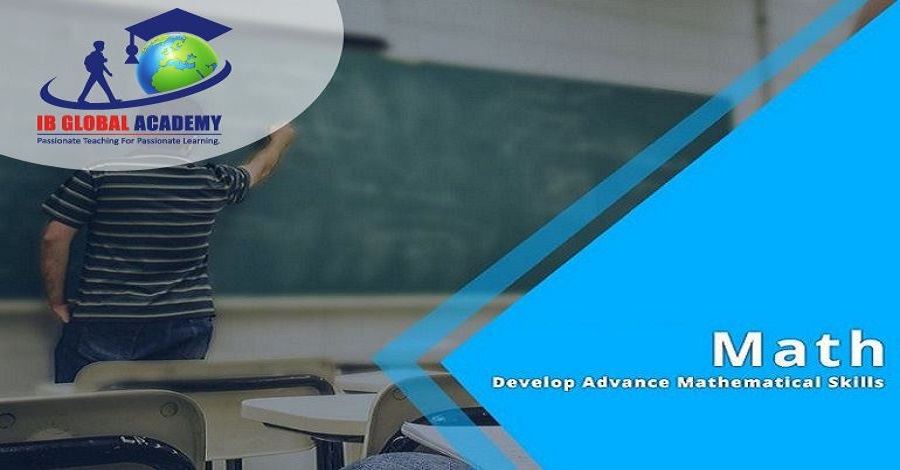




 01/01/2024
01/01/2024
The Middle Years Programme, or MYP, is a component of the International Baccalaureate's curriculum. It comes before the highly regarded and demanding IB Diploma and builds upon the Primary Years Programme, which gives students a foundation in a range of subjects.
One of the courses offered for the MYP is mathematics. The IB programmes are unique in that they emphasise self-directed learning and independence above other types of certifications.
Students receive metacognitive tools in addition to traditional subject content; they learn how to learn. Students between the ages of 11 and 16 are targeted, and upon completion, they can obtain the IB MYP certification.
Recognising the MYP Evaluation Standards
The framework for assessing student performance in all subject areas is provided by the MYP assessment criteria. Exams, projects, demonstrations, and portfolios are just a few of the forms of work by learners that are evaluated using criteria that evaluate particular skill and knowledge areas.
Parents and students must both grasp the assessment criteria in order to understand the MYP's expectations and IB MYP assessment standards.
MYP maths components
It is expected of students to apply appropriate problem-solving techniques and apply their theoretical knowledge of mathematics to real-world scenarios.
To solve authentic real-life problems, they should be able to recognise pertinent components of those situations, choose appropriate mathematical strategies, and successfully apply those strategies to arrive at a solution.
IB MYP question banks for maths and IBGA’s IB math test paper collection
Question banks are a helpful tool for exam preparation, even with certain drawbacks. By enabling question randomization, they enable instructors to create efficient online tests without the need for proctoring software.
Question banks also make it easier to set up practise exams, and you can incorporate exam questions into course assignments to help students get comfortable with exam format and question types.
The development and curation of a sizable number of questions structured for online administration via question banks could be useful in addressing issues that teachers and students encounter.
Number, algebra, geometry, trigonometry, statistics, and probability are all covered in the Middle Years Programme (MYP) mathematics curriculum of the International Baccalaureate (IB).
The program's objectives are to improve participants' conceptual knowledge, logical reasoning abilities, and mathematical expertise. It facilitates students' appreciation of mathematics' universality and helps them to apply their understanding of mathematics in a variety of contexts.
IBGA’s past paper collection are bespoke fit to MYP assessment standards alike question banks.
Advantages of IB maths question banks or IBGA’s IB Math test paper
IB MYP Question banks for maths support with comprehension of the exam format, comprehensive coverage of the syllabus, effective time management, lots of practice, enhanced exam performance, and self-evaluation. Additionally, they help students learn more effectively and retain information better, and they are an invaluable tool for educators.
Extended retention of knowledge:
Question banks facilitate efficient learning and knowledge retention as well. Students gain a deeper comprehension of the material and are able to retain it for longer periods of time as they practise answering a range of questions. This is due to the fact that using question banks for practise forces students to practise active recall and repetition—two strategies that have been shown to improve memory and learning.
Resources for instruction and learning that work well:
Teachers and students can both benefit from using question banks. Both can create and complete assignments, practice exams, and revise using question banks. This aids in evaluating the students' comprehension of the material and pointing out areas that require additional focus. Teachers also save time and effort because they don't have to start from scratch when creating questions.
Inclusive benefits
The following are some ways that question banks may prove useful in preparing for IB MYP maths success:
Benefits associated with IBGA’s past papers
Teachers and Students Can Access Themselves: Since the tests are administered online, students can administer them from any location. Instructors can assign distinct sets of questions to individual students and monitor their progress. At their convenience, teachers can assess the papers as well.
Takes Less Time: Because online tests are automated, administering them doesn't take as much time. Because they can participate remotely in the online course, teachers and students can also save time on their travels.
Summary
A planned collection of exam questions or past papers, which is created to serve specific predefined objectives is called a question bank. To ensure that they cover the whole prescribed text, question banks should be carefully prepared. A question bank should cover all the material in all its forms and be comprehensive.